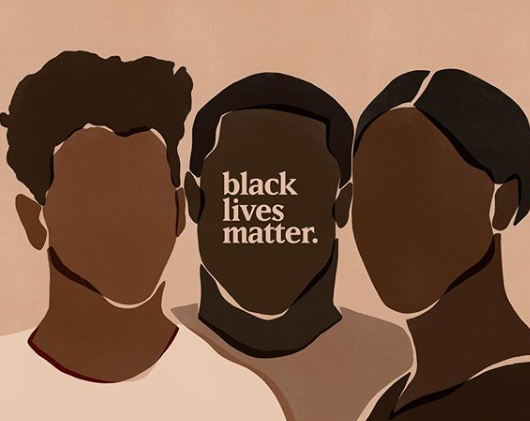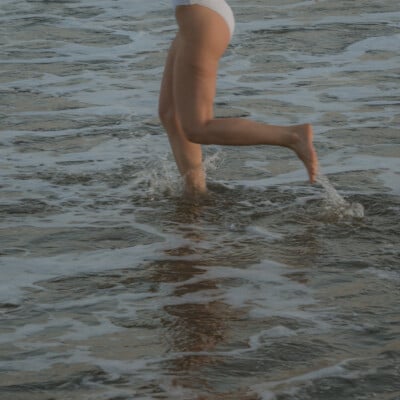Standing on my apartment balcony over the last few days, I’ve watched thousands of protestors march through the streets of Minneapolis asking for justice in George Floyd’s name. At once heartbreaking and powerful, it’s reignited my desire to commit to allyship and take action to make things better.
Over the past several days, I’ve been inspired by stories of great courage. And I’ve realized: it shouldn’t take witnessing an act of extreme injustice to ignite us to do the work. When I sat down to write this article – what was originally supposed to be a listicle about allyship – I felt called to go deeper. Because just calling ourselves an ally is not enough. We need to be continually educating ourselves, then doing the work, using our voices, and taking action for change.
When I wrote this piece back in February, I had no idea that it would kick start so many conversations in my own life with people who wanted to learn more. And in the past week on social media, I’ve seen the question repeated over and over: what can I do and where do I start?
Well, first we start by realizing that when we choose to speak out, we’ll get some things wrong. I certainly have. And we have to be ready to own our mistakes and commit to learning. You see, you don’t have to have all the answers in order for your voice to make a difference. An authentic intention to listen and learn will be your guide.
One document that’s been floating around Instagram, Important Anti-Racism Resources for White People, includes many of the resources and action items that I outline below. These are some questions I’m exploring in my own life, as I seek to take action for good. I’m sharing them here in the hopes that they may spark something for you as well. Because this is about doing the work, not about giving yourself a label. Being an ally and anti-racist is an ongoing process, and it doesn’t start and end based on your latest social media post. Ally is a verb.
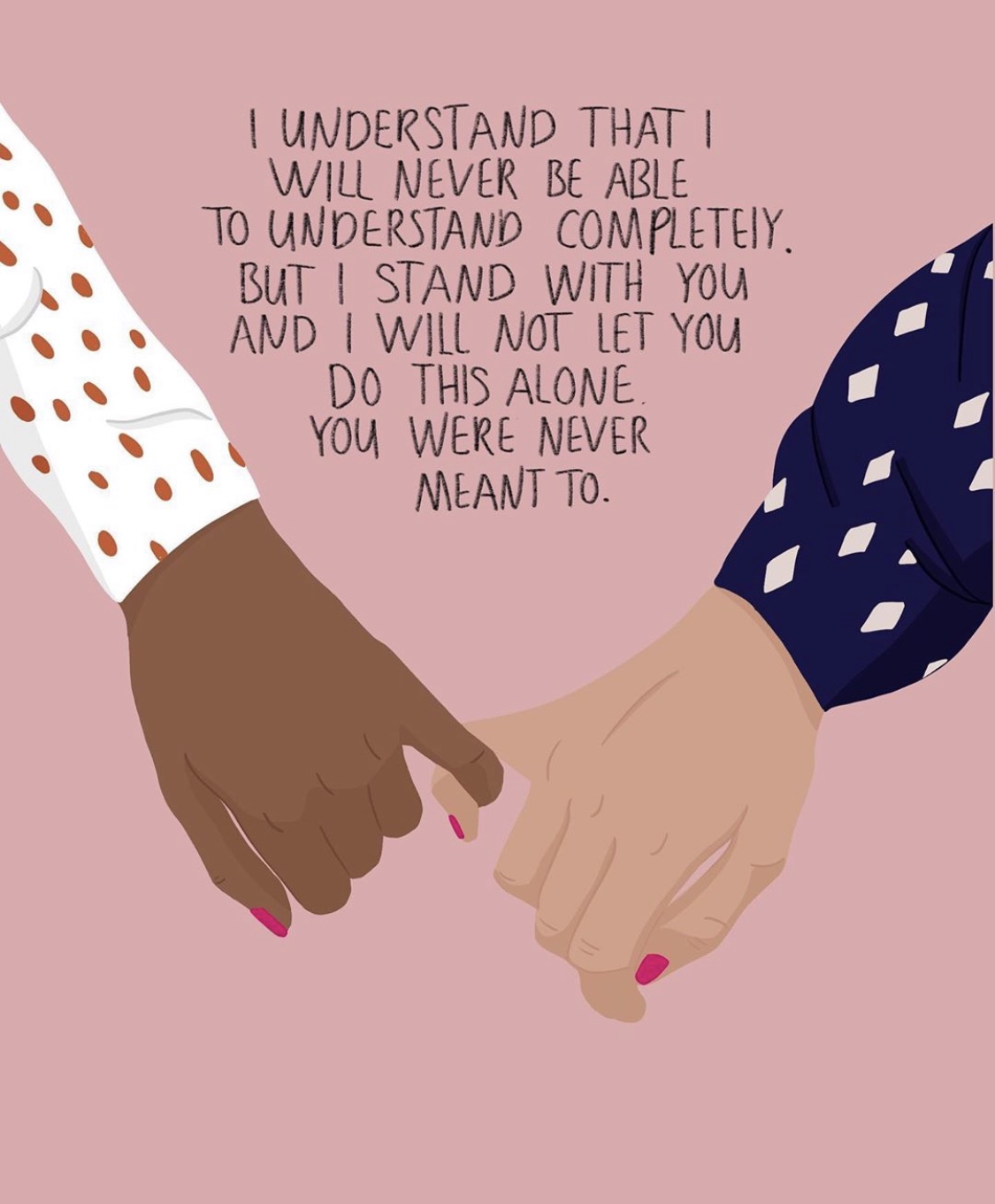
What privileges and biases do I have?
Something I’ve had to unpack over this last week is that as an Asian American I have certain privileges, and I’ve benefited from the work the black community has done. As a person of color, I often feel like I’m already doing work in one way or another to advocate for my community. I’ve spent the last few years trying to dissect the work within my own community and experience, and it’s been a valuable education.
But I got comfortable. I got comfortable in knowing what I believe and letting myself think that was enough. I’ve had to re-ask myself these questions as an ally and re-visit my answers with additional education to understand my privileges. As a non-Black person of color, I have the ability and privilege to move through this country with opportunities not afforded to everyone. I will never fully know the struggles of the Black community, and the fact that I was solely focused on work within my own community was a mistake on my part. A lot of the privileges I have as a South Asian American here are afforded to me because of the work and experiences of Black people in this country. With that privilege, I should and need to be doing more as an ally.
I share this in hopes of inviting others into the conversation and showing that the journey to being an action-oriented ally is not linear. We all make mistakes along the way, and doing the work takes effort and looking deep within ourselves to discover what we are holding onto. Know that this will be a lifelong journey of learning. Start with yourself. Learn your privilege and what it means. Psychologists at Harvard have created Project Implicit, an eye-opening exercise in understanding the unconscious biases we carry. To learn about racism instead of experiencing it is itself a privilege.
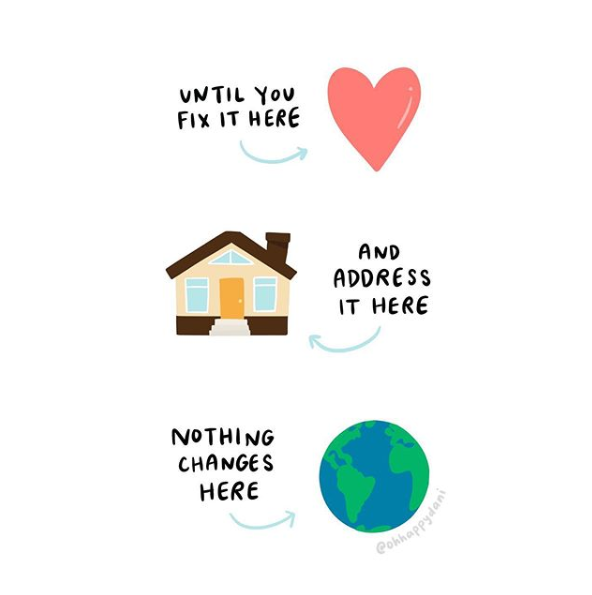
What do I need to educate myself on?
POC are not your teachers. Black people are not our teachers. It is not BIPOC’s job to teach you how to be an ally. A lot of being an ally means going out and doing the hard work yourself. Remember, ally is a verb, not a noun. That doesn’t mean you can’t ask questions, but it means that you need to put boot to dirt and do some self-education. If you need clarity, ask someone you trust.
Let’s clarify with an analogy I recently heard at a diversity event. Let’s say your friend is a professional chef. You wouldn’t be calling your friend every time you had a question about how to cook an omelette or if a certain blend of spices worked together. Your friend would eventually ask that you refer to the internet or books for help so you weren’t running to them every time you had a question about how to cook. There’s a balance between educating yourself, listening to learn, and asking the groups for whom you are advocating for what they need.
Lucky for us, the internet exists and there are tons of articles, books, and resources that Black educators and activists have been sharing for years. The information is out there for us. Start researching terms you may not understand, read books by Black authors, watch speeches, lectures, and films by Black educators and creators. The document I have linked to at the beginning of this post has a great condensed list of books, films, and work to reference and educate yourself with. Follow a variety of accounts, from activists to diverse businesses.
Do the work, and then if you need additional clarity or help to understand a concept, phone your trusted friends without putting the burden on them to teach you all you need to know.
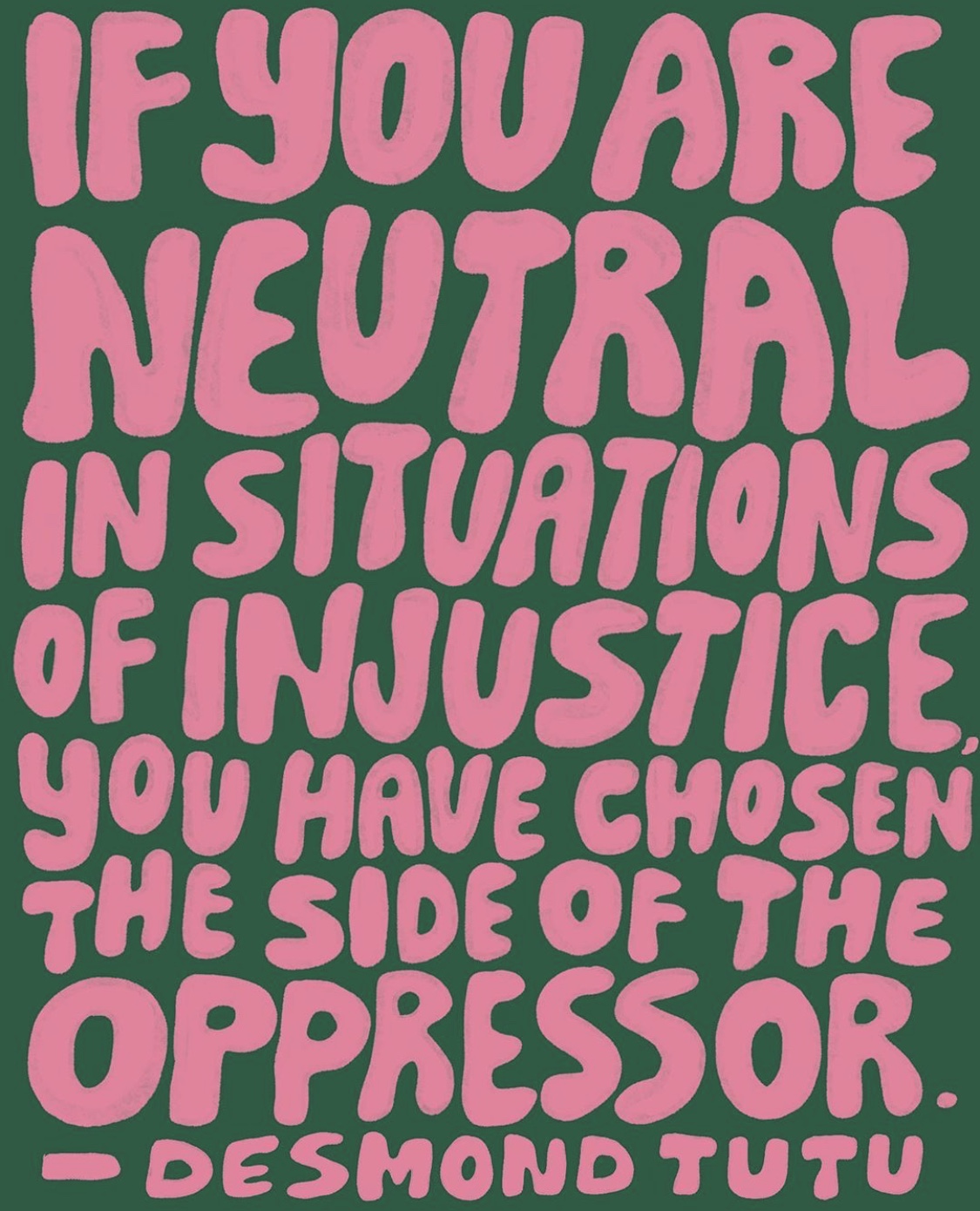
How do I turn what I’m learning into action?
You’ve listened, you’ve learned about your biases, you’ve begun to use your voice. Now what? Based on conversations I’ve had with friends, this seems to be where many people get stuck. I recommend taking what you’ve learned and joining the conversation in your own community. I liked this post on The Four Stages of Becoming Antiracist. Yes, we need to start by increasing awareness, but (and I will repeat again), ally is a verb. These actions do not stop next week, and they do not stop just because you post on social media and check it off the list. Being an ally is lifelong work.
It can be easy to think that unless you are making some big sweeping impact, your voice doesn’t matter. But that’s simply untrue. Start small, start with your family and the people in your own life over the dinner table, learn how to talk to your kids about racism. Start by calling out microaggressions and injustices, even when it’s uncomfortable. Continue your education. If you are able to, donate to the cause. Not just once and not just because of an act of injustice. Here in the Twin Cities, I’ve donated to Black Visions Collective, Reclaim the Block and We Love Lake Street.
There’s a quote going around by Courtney Ariel that has resonated with me this last week: “Keep trying. You’re going to make mistakes. Expect this. But keep showing up. Be compassionate, lead with empathy, always. Keep learning and growing.”
I by no means have all the answers. I’m not an expert. I’m on this journey of advocating, self-educating, and understanding just as much as any of you reading this is. But I truly believe that if we all take the steps and do the work, even if those steps start out small, we can make a difference. We’re going to stumble along the way, but keep showing up. Learn and educate yourself and lead with compassion. Know that I’m here to listen as well. I’m not always going to get it right, but I want to continue this dialogue and learn with you.
Scroll on for a few other resources that have been helpful to me. Please leave a comment sharing the books, movies, Instagram accounts, articles, and podcasts that are resonating with you right now!
image: Célia Amroune and Aline Kpade
For Our White Friends Desiring to Be Allies – 6 things you can do to be a stronger ally
Better Allies Newsletter – While not specific to BIPOC, their weekly “5 Ally Actions” newsletter gets sent straight to your inbox with simple actions to take every day for allyship in many situations. They’re simply good reminders.
Inequity – illustrated depiction to the unequal distribution of opportunities
Instagram Accounts to Follow:
Rachel Cargle
The Conscious Kid
Ijeoma Oluo
The Great Unlearn

